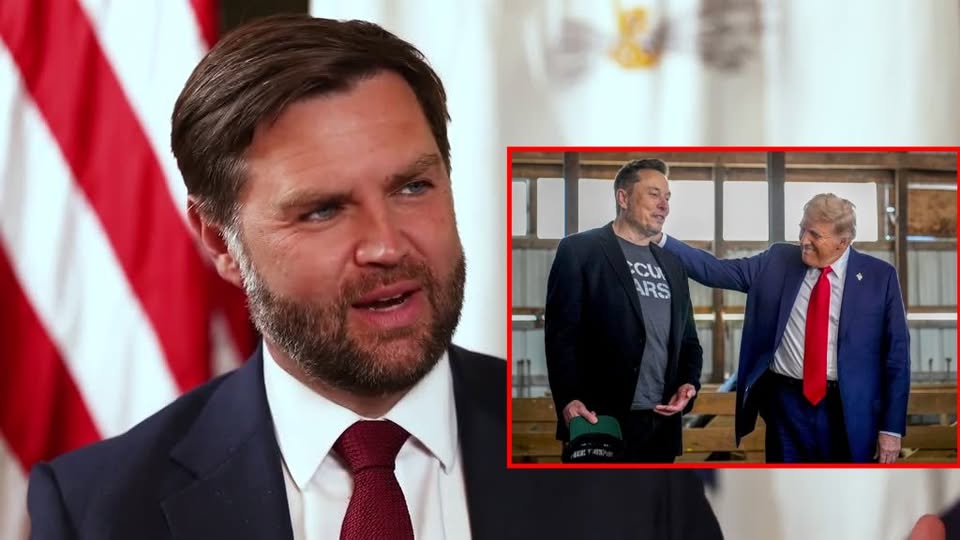Explore JD Vance’s insights on Elon Musk’s ambitious vision for the future. Discover how their ideas intersect and what it means for innovation and society.
Elon Musk, the enigmatic entrepreneur behind Tesla, SpaceX, and now X (formerly Twitter), has never shied away from grand pronouncements and even grander ambitions. His vision extends beyond mere technological advancement; it encompasses the very future of humanity, from sustainable energy and interplanetary travel to the reshaping of digital communication. Recently, Ohio Senator JD Vance, a prominent voice in contemporary American conservatism, has offered his insights into Musk’s often-controversial yet undeniably impactful endeavors. Understanding Vance’s perspective on Musk’s vision provides a fascinating lens through which to examine the broader societal implications of disruptive innovation and the varying political interpretations of technological progress.
A Shared Emphasis on American Innovation?

Both JD Vance and Elon Musk, in their respective spheres, often champion American ingenuity and a spirit of bold ambition. Vance, through his political commentary and policy proposals, frequently emphasizes the need to revitalize American manufacturing and technological leadership. Similarly, Musk’s companies, particularly SpaceX and Tesla, are often presented as paragons of American innovation, pushing the boundaries of what’s considered possible.
It’s plausible that Vance finds resonance with Musk’s commitment to building and producing tangible goods and technologies within the United States. Musk’s emphasis on vertical integration, bringing manufacturing processes in-house, could align with Vance’s focus on bolstering the American industrial base and creating high-paying jobs. Both figures, in their own ways, seem to advocate for a return to a more robust and self-reliant American economy, driven by innovation and production.
Divergences in Ideological Landscapes
Despite potential areas of agreement, significant ideological differences likely exist between the populist conservative senator and the libertarian-leaning tech titan. Musk’s vision often embraces a global perspective, with ambitions like colonizing Mars driven by a long-term view of humanity’s survival. Vance’s focus, while not strictly isolationist, tends to prioritize national interests and the well-being of American citizens.
Furthermore, their approaches to societal problems might differ considerably. Musk often seeks technological solutions to grand challenges, believing that innovation can overcome obstacles ranging from climate change to traffic congestion. Vance, while acknowledging the importance of technology, often emphasizes cultural and political solutions, focusing on issues like family stability and community revitalization.
The X Factor: Free Speech and the Digital Public Square
Elon Musk’s acquisition of Twitter and his subsequent rebranding as X have ignited a global debate about free speech on social media platforms. Musk has positioned himself as a staunch defender of unfettered expression, a stance that has drawn both praise and criticism. JD Vance, like many conservatives, has also voiced concerns about censorship and bias on social media platforms.
It’s conceivable that Vance appreciates Musk’s commitment to a more open and less moderated digital public square. Both might share a skepticism towards centralized control of information and a belief in the importance of diverse viewpoints. However, the practical implications and potential consequences of Musk’s approach to content moderation might present areas of disagreement, even among those who broadly support the principle of free speech.
The Role of Government and Regulation
Another potential point of divergence lies in their perspectives on the role of government and regulation. Musk, while often benefiting from government contracts and subsidies, has also expressed strong criticisms of excessive regulation, particularly when it hinders innovation. Vance, coming from a political background, likely holds a more nuanced view on the necessity and appropriate scope of government intervention.
Their differing perspectives on issues like environmental regulations, labor laws, and antitrust measures could create friction in their overall visions for the future. While both might agree on the need for efficient and effective governance, their ideas on the ideal balance between government oversight and private sector freedom could differ significantly.
A Complex Interplay of Ideas
Ultimately, JD Vance’s thoughts on Elon Musk’s vision are likely multifaceted and nuanced. There are undoubtedly areas of overlap, particularly concerning the importance of American innovation and a degree of skepticism towards established institutions. However, significant differences likely exist in their ideological frameworks, their approaches to societal challenges, and their views on the role of government.
Examining the perspectives of figures like Vance on the ambitions of individuals like Musk is crucial for understanding the broader societal conversations surrounding technological progress and its impact on our future. It highlights the diverse ways in which innovation is interpreted through different political and philosophical lenses, shaping the ongoing debate about the direction of our society in an era of rapid technological change.
